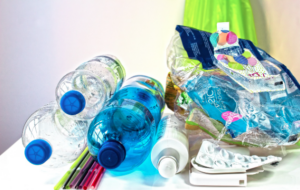 Plastics are used in almost every facet of our lives. From containers to toys, plastic is everywhere. Ever notice the symbols imprinted on plastic containers and wonder what they mean? Or, have you considered which ones are recyclable and what they can be transformed into? Read on to learn about plastics recycling by the numbers and the machines used to bale them for recycling!
Plastics are used in almost every facet of our lives. From containers to toys, plastic is everywhere. Ever notice the symbols imprinted on plastic containers and wonder what they mean? Or, have you considered which ones are recyclable and what they can be transformed into? Read on to learn about plastics recycling by the numbers and the machines used to bale them for recycling!
Types of Recyclable Plastics
The symbols located on different types of plastics are not there to tell you that they are recyclable. The simply tell you what type of plastic the product is made of. Here are plastics by the numbers:
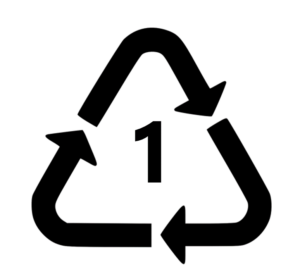
#1 PET / PETE (Polyethylene terephthalate) Includes water bottles, mouthwash bottles, peanut butter containers, oven-ready food trays, and vegetable oil containers.
PET is recyclable and is commonly reused to make thinks like carpet fibers, jackets, totes, containers, film, and more!
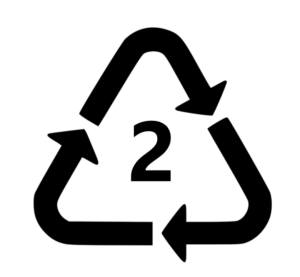
#2 HDPE (High-density polyethylene) Includes containers from dairy products like milk jugs, yogurt and cottage cheese. Other items in this code include cereal box liners, and grocery and trash bags.
HDPE is recyclable and is made into bottles for beauty products, composite decking, floor tile, buckets, edging, and more!
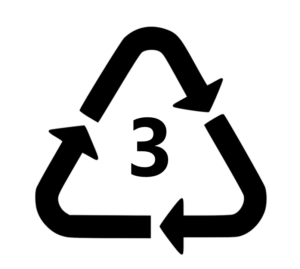
#3 PVC (Polyvinyl chloride) Includes vinyl fencing, pipes, siding, windows, and piping.
PVC is recyclable and should never be burned because of its chlorine content. It is recycled into decks, paneling, gutters, flooring, mats, and more!
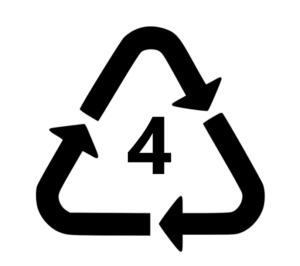 #4 LDPE (Low-density polyethylene) Includes squeezable bottles such as mustard and honey, and plastic bags such as bread bags, frozen food bags and dry cleaner bags.
#4 LDPE (Low-density polyethylene) Includes squeezable bottles such as mustard and honey, and plastic bags such as bread bags, frozen food bags and dry cleaner bags.
LDPE is recyclable and commonly made into trash can liners, shipping envelopes, landscaping products, compost bins, and even furniture!
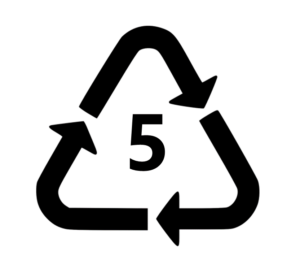
#5 PP (Polypropylene) Includes drinking straws, caps to aerosol products, and medicine bottles.
This is one of the least recycled plastics but can be made into brooms, rakes, oil funnels, bike racks, trays, ice scrapers, and pallets.
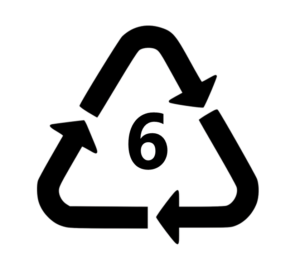
#6 PS (Polystyrene) Includes plastic egg cartons, foam peanuts, food containers, meat trays, compact disc jackets. It is commonly referred to as Styrofoam.
Not many recycling centers accept #6 PS but it can be recycled into things like insulation, egg cartons, light switch plates, and other foam packaging and containers.
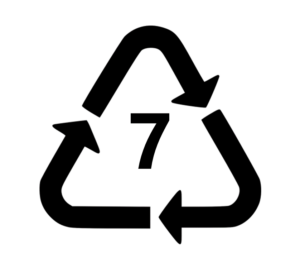
#7 (Other Plastics Like Polycarbonates, Multi-Resin, and Mixed Plastics) Includes other plastics that can be recycled such as Tupperware and other plastic food containers, larger reusable water jugs and others.
Are difficult to recycle but can be done chemically into things like composite lumber.
Plastic Recycling
Because plastics are not bio-degradable, we need to recycle them whenever possible. Whether you are learning more about plastic recycling for your home, business, or municipality, learn all you can. Not all areas and recycling centers accept all of the 1-7 plastic codes yet, but many do and are continually expanding. Inquire into what is available in your area or your workplace to recycle as much as you can.
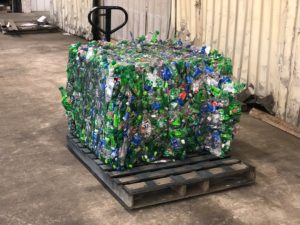 For people who want to make a business in recycling, recycling all types of plastics has potential. Earth911 states that in recent years, the number of U.S. plastics recycling business has nearly tripled. More than 1,600 businesses are involved in recycling post-consumer plastics. Since the cost of manufacturing plastic from scratch is more expensive than the cost of recycling plastic for re-use, using a plastic recycling machine to recycle plastic into bales can be profitable.
For people who want to make a business in recycling, recycling all types of plastics has potential. Earth911 states that in recent years, the number of U.S. plastics recycling business has nearly tripled. More than 1,600 businesses are involved in recycling post-consumer plastics. Since the cost of manufacturing plastic from scratch is more expensive than the cost of recycling plastic for re-use, using a plastic recycling machine to recycle plastic into bales can be profitable.
Balers For Recycling Plastics
Plastics are labeled with a coded number of one through seven, typically located on the bottom of the package. But even an avid recycler may be surprised to see some of the items that are recyclable that they may have not realized. To generate revenue for your business, you will want to bale up your plastics to be picked up or shipped to a recycler who will pay you for your excess commodity.
The type of recycling baler you need depends on the volume of recyclables, the force needed to compress the type of plastic, how the plastic will be fed into the machine, operational space at your facility, and budget.
Harmony Enterprises manufactures both vertical balers and horizontal balers for baling all types of plastics. These innovative, long-lasting recycling machines come in a variety of sizes and feeding configurations for your exact needs. Harmony’s knowledgeable sales team can work with you to help determine what type of baler is best to recycle your plastics.
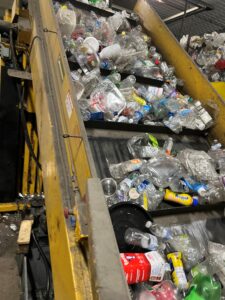 One example is a business in central Iowa that uses five of the same automatic cycling conveyor fed balers to bale their recyclables.
One example is a business in central Iowa that uses five of the same automatic cycling conveyor fed balers to bale their recyclables.
Carroll County Solid Waste uses five Harmony T60XDRC’s to help them recycle several different types of plastics in their operations, including PET, HDPE, LDPE, and PP. Materials at this facility are sorted and fed into a hopper and conveyed to the back of the baler where they are compressed with an automatic cycle. Once the bale is full, operators manually tie off the bales and remove them with a forklift. These mill-sized bales are easily stackable and make for efficient transport to the end buyer.
Contact Harmony Today!
If you would like to learn more about recycling plastics, what they symbols on plastic products mean, or what type of machines are needed for recycling plastic from your business, call Harmony at (507) 886-6666 today! Or, fill out this simple form and someone will reach out to answer any questions you might have.
